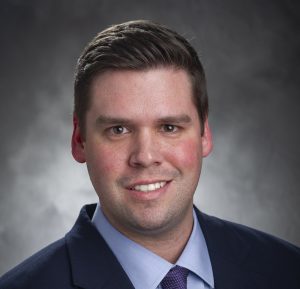Woodford County news briefs
July 17, 2019
Various locations around the Woodford County Courthouse where University of Illinois Extension Woodford County Master Gardeners recently added mulch around the plants. (University of Illinois Extension Master Gardeners)
WOODFORD COUNTY
Proper mulching and more tips Master Gardeners
University of Illinois Extension Woodford County Master Gardeners recently added mulch around the plants at the Woodford County Courthouse garden, which will help keep the plants healthy, and provide a drastically improved the look for the garden.
Adding mulch to your garden insulates the soil, providing a barrier from summer’s high heat and the bitter cold of the winter. Mulch also retains moisture for plants roots, suppresses weeds, and prevents soil compaction.
For more information on this program or other Extension programming, contact Kelly Allsup at 309-663-8306 or kallsup@illinois.edu.
EUREKA
Advocate Eureka names new practice manager
Advocate Aurora Health welcomes Colin Carroll as practice manager for Advocate Eureka Hospital’s family medicine clinics in Eureka and El Paso and Advocate Medical Group’s practice in Roanoke.
Carroll was born and raised in Bloomington-Normal and is a graduate of the University of Iowa’s Health Management and Policy Program. He has a master’s degree in health care administration and has been working in the outpatient setting since 2015.
While at the University of Iowa, Colin completed a fellowship in multi-specialty medical and surgical group practice management, and oversaw 5 primary care clinics in the Iowa City metropolitan area.
In this role, Carroll will oversee daily operations for the three clinics that employ 45 people including five physicians, two physician assistants, and two nurse practitioners.
The clinics are located at 105 South Major Street in Eureka, 385 South Orange St., in El Paso and 415 West Front St., in Roanoke. All are accepting new patients.
REGIONAL
Red Cross issues urgent call for blood and platelet donors
Following a difficult Fourth of July week for blood and platelet donations and ongoing challenges finding new blood donors, the American Red Cross now faces a blood shortage and has issued an emergency call for eligible individuals of all blood types to give now and prevent delays in medical care.
About 450 fewer blood drives were organized by businesses and other community groups last week than during a typical week as people across the country celebrated the holiday with activities and travel.
This led to about 17,000 fewer blood donations than needed for patients in a single week, causing the Red Cross to now have less than a three-day supply of most blood types available —and less than a two-day supply of type O blood — for patients. At least a five-day supply is desired.
In June, the Red Cross launched the Missing Types campaign to encourage donors — especially new donors and those who have not donated in the past years — to give blood or platelets during the challenging summer months.
Through the campaign, the letters A, B and O — letters that make up the main blood groups —disappeared from popular brands to symbolize what happens when blood goes missing from hospital shelves during blood shortages.
Despite an encouraging response to the campaign, blood donations still fell short of expectations in June, resulting in more than 24,000 fewer donations than needed, and causing a significant draw down of the Red Cross blood supply.
How to help
Donors of all blood types, especially type O, are urged to make an appointment to donate using the Blood Donor App, at RedCrossBlood.org or by calling 1-800-RED CROSS (1-800-733-2767). Donation appointments and completion of a RapidPass online health history questionnaire are encouraged to help reduce the time it takes to donate.
Those interested in hosting a blood drive can learn more and sign up to sponsor a drive this summer by visiting RedCrossBlood.org/HostADrive.
STATE
IEMA encourages earthquake preparation
The recent earthquakes in Southern California serves as a stark reminder that earthquakes can happen anywhere including Illinois, according to the Illinois Emergency Management Agency.
Illinois is flanked on its western and eastern borders by two active seismic zones: the New Madrid Seismic Zone and the Wabash Valley Seismic Zone. An earthquake similar to what was recently experienced in California could have devastating effects on our state.
Learning how to “Drop, Cover and Hold On” can help people prevent injury during an earthquake. The phrase reminds people to drop down to the floor, take cover under a sturdy desk, table or other furniture, and hold on to that object and be prepared to move with it until the shaking ends. Most casualties result from falling objects and debris caused by the earth shaking.
There are several steps people can take to help prevent injuries and property damage at home, including:
- Strapping water heaters and large appliances to wall studs
- Anchoring overhead light fixtures
- Fastening shelves to wall studs and securing cabinet doors with latches
- Strapping TVs, computers and other heavy equipment to prevent tipping
- Learning how to shut off gas, water and electricity in case the lines are damaged
Each year the IEMA leads an initiative to register homes, businesses, schools and organizations in the world’s largest earthquake drill. This year’s earthquake drill will take place on Thursday, Oct. 17 at 10:17 a.m. It’s never too early to register your participation in this potentially life-saving event. Register today at www.shakeout.org.
Learn more about how you can prepare your home, business and family for an earthquake at www.Ready.Illinois.gov.








